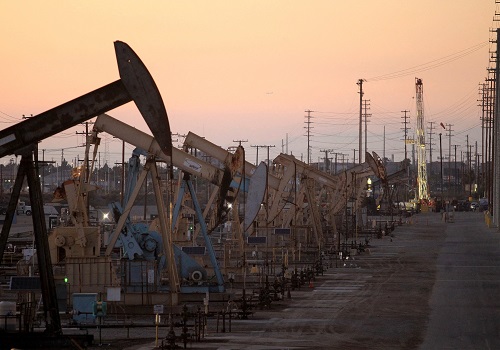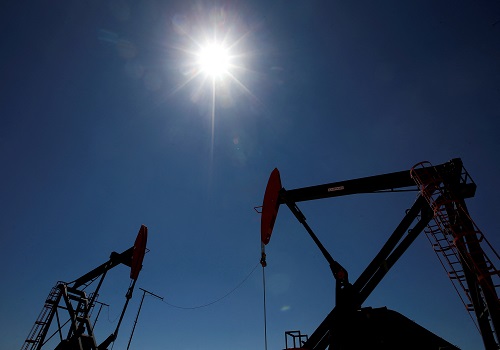Oil prices jittery as market wary of demand risks

Follow us Now on Telegram ! Get daily 10 - 12 important updates on Business, Finance and Investment. Join our Telegram Channel
Oil prices struggled to find their footing in Asian trade on Thursday after easing in the previous session on the back of a weakening global demand outlook.
Brent crude futures dropped 7 cents, or 0.1%, to $92.38 a barrel by 0310 GMT. U.S. West Texas Intermediate crude was down 21 cents at $87.06 a barrel, or 0.2%.
Both OPEC and the U.S. Energy Department have cut their demand outlooks, while a flare-up in COVID-19 cases in China has sparked fresh demand concerns for the world's top crude importing-country.
"This week has placed growth risks back into the spotlight for oil prices, as the initial enthusiasm over OPEC+ production cuts has proved to be short-lived and gains are seen fading off," said Jun Rong Yeap, market strategist at IG.
"While the OPEC+ production cuts may provide somewhat of a floor for oil prices, upside may seem limited as economic conditions will run the risks of further moderation as a trade-off to further Fed's tightening process," Yeap added.
Last week, the producer group comprising the Organization of the Petroleum Exporting Countries (OPEC) and allies including Russia pushed prices higher when it agreed to cut supply by 2 million barrels per day (bpd).
But OPEC on Wednesday cut its outlook for demand growth this year by between 460,000 bpd and 2.64 million bpd, citing the resurgence of China's COVID-19 containment measures and high inflation.
"Growing demand fears and intensifying supply issues are likely to keep commodity prices volatile," said ANZ Research analysts.
"There has not been any relief from China either, as authorities are stepping up with lockdown measures amid rising cases in Shanghai," the analysts added.
The U.S. Energy Department lowered its expectations for both production and demand in the United States and globally. It now sees just a 0.9% increase in U.S. consumption in 2023, down from a previous forecast for a rise of 1.7%.
Worldwide, the department sees consumption rising just 1.5%, down from a previous forecast for 2% growth.
Worsening demand for crude oil is contributing to inventory builds. U.S. crude oil stockpiles rose by about 7.1 million barrels for the week ended Oct. 7, according to market sources citing API data.
The energy market is under pressure as well from the U.S. dollar, which has rallied broadly, including against low-yielding currencies like the yen.
The Federal Reserve's commitment to keep raising interest rates to stem high inflation has boosted yields, making the U.S. currency more attractive to foreign investors.












 320-x-100_uti_gold.jpg" alt="Advertisement">
320-x-100_uti_gold.jpg" alt="Advertisement">












